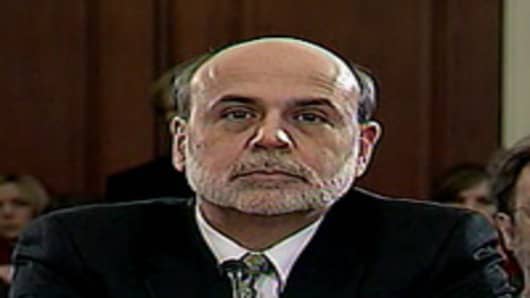Despite weak economic data a double dip recession is unlikely and investors should favor stocks over bonds, according to Chris Watling, the CEO of Longview Economics in London.
The imminent end of the second round of quantitative easing (QE2), falling US bond yields, softening lead indicators and monetary tightening in Asia have led investors to question the bullish case for stocks but Watling told CNBC on Tuesday that these fears are overdone.
“Credit conditions remain loose, the yield curve remains steep, cash flow at the corporate level remains strong while many of the cyclical edges of the economy continue to trend higher,” said Watling.
“Every recession since the 1970s has been forecast, ahead of time, by all of the above indicators,” Watling added.
Other indicators point to a soft patch, not a double dip in Watling’s opinion. These include rising lending in the corporate sector and CEO surveys pointing to confidence on capex and employment.
“All recessions in recent years have been preceded by a tightening of credit conditions. Currently credit conditions are notably loose, firms have excess cash flow while the yield curve is steep,” said Watling.
“Finally recent bond price strength/yield weakness reflects typical bond market seasonality," he said.
“While at this stage in the economic cycle, we view a double dip as unlikely; our medium term (1–2 month) models are also increasingly favoring equities over bonds. Equity indicators are increasingly leaning towards buy, while bond indicators are increasingly on or close to sell,” Watling said.
“On a relative basis, equities are at their most oversold relative to bonds since early July last year from which/when equities rallied meaningfully into year end.”
“From a bond perspective, as highlighted above, there is a clear element of seasonality to the recent rally. Over and above that, on a number of measures bonds are now overbought,” he added.



